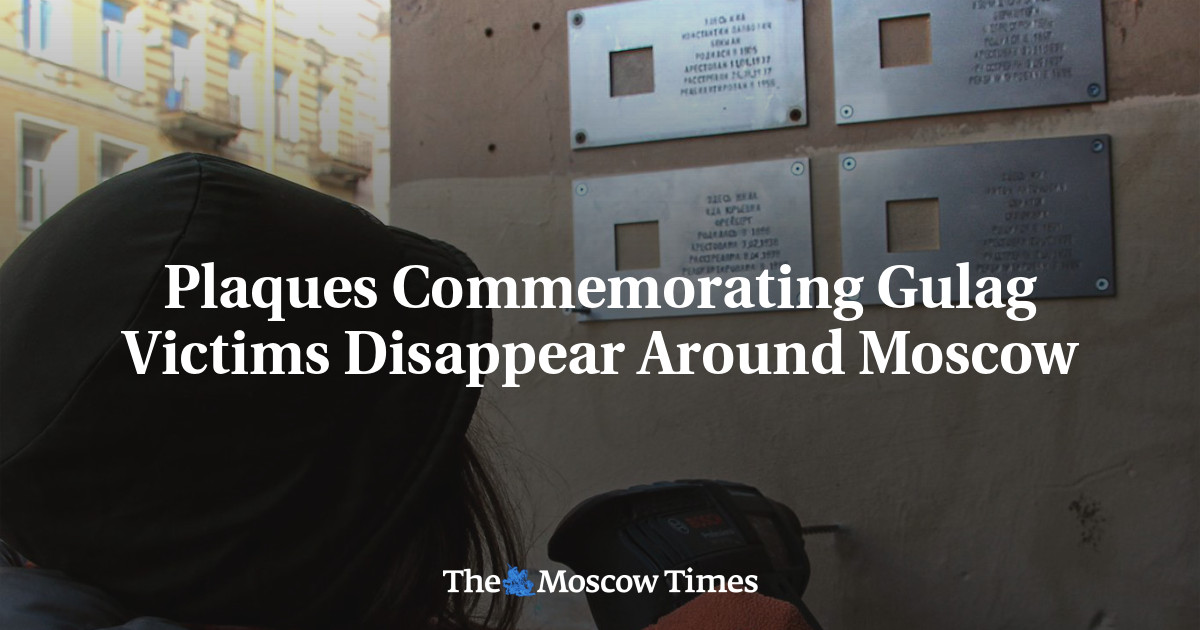
Plaques honoring the victims of the Soviet gulag forced labor camps have started to disappear from buildings across Moscow, the Kommersant business daily reported Wednesday.
The palm-sized plaques first started appearing on building facades as part of a non-government-affiliated memorial project called Last Address in 2015. They feature the gulag victims’ names, occupations and birth and death dates, as well as the year they were rehabilitated, or cleared of all charges.
Last Address described the plaques’ disappearances to Kommersant as “an attack on the project as a whole, not just the theft of individual signs.”
Project coordinator Oksana Matiyevskaya linked the plaques’ removals to the ongoing persecution of Russia’s Nobel Peace Prize-winning civil rights group Memorial.
Russian courts ordered Memorial, Russia’s oldest human rights organization, to disband in 2021.
Prominent Memorial members have been targeted in police raids and other affiliated figures were arrested and jailed since the group was named a co-recipient of the Nobel Peace Prize last fall.
Last Address used Memorial’s database of more than 3 million victims of Soviet repressions for the project.
The plaques’ disappearances are “clearly a planned campaign by unknown extremist Stalinist organizations,” said Vladimir Ryzhkov, an opposition member of Moscow’s legislative assembly.
Ryzhkov has asked Moscow police to investigate the disappearances, Kommersant reported.
His colleagues Daria Besedina, who has been designated a “foreign agent,” and Mikhail Timonov said the disappearances could be qualified as theft.
Last Address told Kommersant it intended to count the number of missing plaques with the help of local activists.
The Moscow Mayor’s Office has not commented on the plaque disappearances.
Previously, pro-Kremlin nationalist activists were implicated in removing a plaque honoring slain opposition politician Boris Nemtsov from his former Moscow home in 2017.